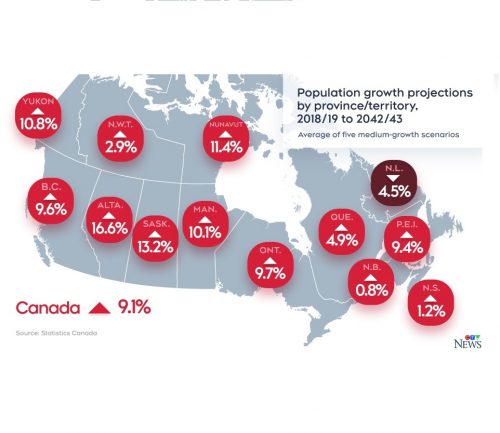Your Canadian Geospatial Briefing for March 4th: Sidewalk Labs; Vancouver Police force; MDA Forest Alert; DDC Top Venture 50; Joseph Klafter
The official GeoIgnite 2019 website has launched!
The GeoIgnite 2019 website is your place to register to attend, exhibit, sponsor, or simply receive updates on speakers and presenters. Our current keynote speakers include Keith Masback, former Chief Executive Officer of the United States Geospatial Intelligence Foundation (USGIF), Prashant Shuckle, Director General of the Canada Centre for Mapping and Earth Observation (CCMEO), and Sanjay Kumar, Founder and CEO of Geospatial Media & Communications, who was conferred the ‘Global Geospatial Industry Ambassador’ Award by UN-GGIM.
We are excited to be bringing together senior members of the government, business executives, and thought leaders in the IT and location technology sectors in our nation’s capital. GeoIgnite 2019 is to be the seed that grows into a truly national annual conference. Check out the website and be sure to sign up for more details!
Vancouver police employ AI to predict crime
The Vancouver police department has deployed a machine learning solution that uses an algorithm to use crime patterns to predict future offences. The pilot project for the technology has already reduced burglary by more than one fifth month over month; the new framework follows a Compstat policing model that combines computer statistics and GIS to help crime reduction. Said Ryan Prox (a special constable in charge of crime analytics advisory and development unit with the Vancouver Police), on a blog on the ESRI site: “Every 28 days, our management reviews crime trends, crime clustering, and crime issues across the city… It has driven us to more of an evidence-based policing approach with accountability on how our officers are being deployed, the resources being allocated, and the net return on our actions.”
Sidewalk Labs pushes Quayside Toronto 
Google subsidiary Sidewalk Labs is determined to make the Quayside smart city in Toronto a world-class example of post-industrial innovative urban development. By combining urban design with digital technology, the new neighbourhood is intended to achieve high levels of sustainability, affordability, mobility, and economic opportunity. The project will begin with a new neighbourhood located at Parliament Slip in Downtown Toronto and be a testbed for digital innovations within Sidewalk Toronto’s responsible data use framework. Sidewalk Labs says that the project “can make Toronto the global hub in the field of urban innovation”, creating thousands of new jobs and generating billions in investment.
MDA benefits the environmental commitments of APP
MDA Maxar has announced that its Forest Alert service has helped Asia Pulp & Paper’s (APP) pulpwood suppliers to better monitor forest cover loss. In less than three years since MDA began the monitoring service, APP reports the losses in forest cover have been reduced between 5-6%, allowing APP to meet their commitment to stakeholders that conservation forest areas would not be cleared to make their products. Using MDA’s RADARSAT-2 satellite, FAS provides space-borne services to monitor 3.8 million hectares, ultimately helping to preserve the Indonesian rainforest. The information provided by the RADARSAT-2 satellite is ideal for markets requiring broad-area or targeted surveillance, including maritime, agriculture, and disaster management.
DDC recognized as Top Venture 50 company
Drone Delivery Canada (DDC) has announced that it has been recognized by the TMX Group as a 2019 TSX Top Venture 50 Company ranking third in the Technology sector. The TSX Venture 50 ranks the top ten performers on TSX Venture Exchange from five industry sectors: Clean Technology and Life Sciences, Diversified Industries, Energy, Mining, and Technology. DDC ranked third in technology with trading volume in excess of 90 million shares. Richard Buzbuzian, President of DDC, said that in 2019 the company plans to move its technology “out of the lab and into the sky”.
Funding innovation through business

Image by Aaron Lynett/National Post
On a recent visit to Toronto, award-winning chemist Professor Joseph Klafter—current President of Tel Aviv University—was interviewed by Rebecca Walberg of the National Post. Klafter came to discuss Tel Aviv University’s non-profit Entrepreneurship Center called StarTAU, which nurtures new businesses by connecting innovators, researchers and academics with aspiring entrepreneurs. He encourages other universities to take up an “affiliated business branch”, a framework which splits revenues when research is commercialized. This model creates incentives to take basic research and find ways to apply it in business. The future of StarTAU and other initiatives like it comes down to strong support for research, and enough funding for researchers to get from an idea to a patent. Without funding, good ideas may never make it all the way.







